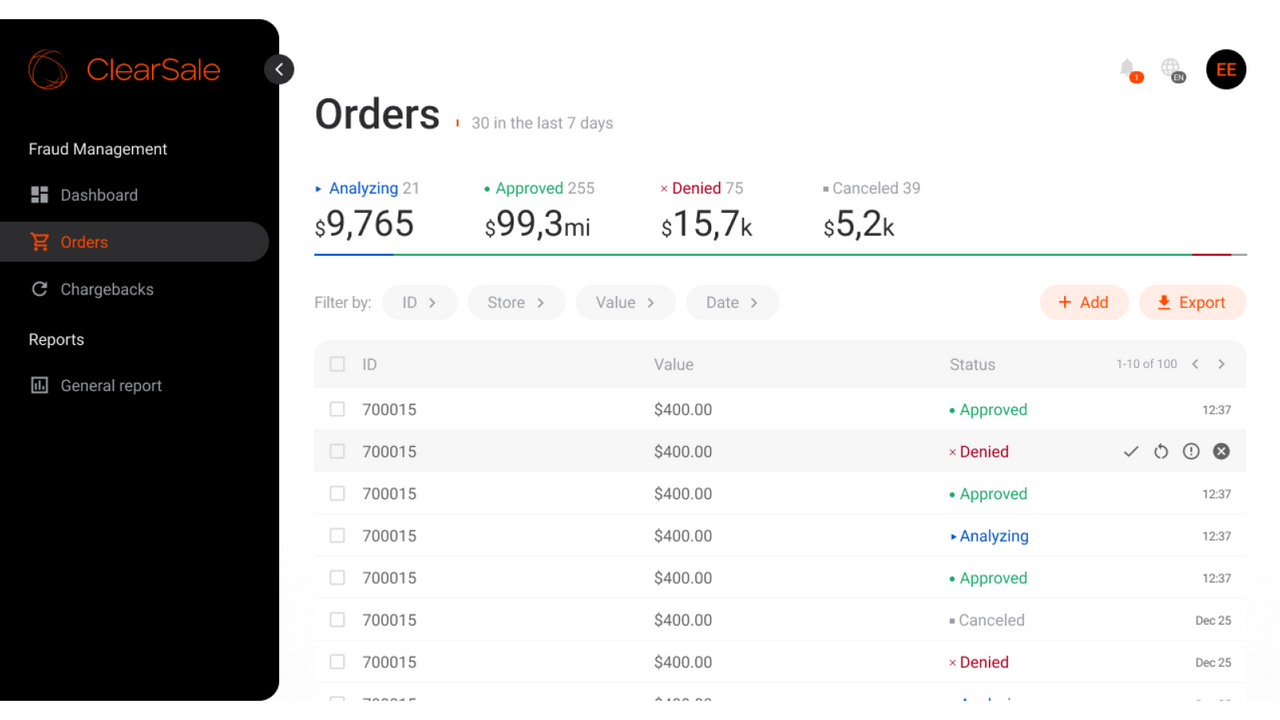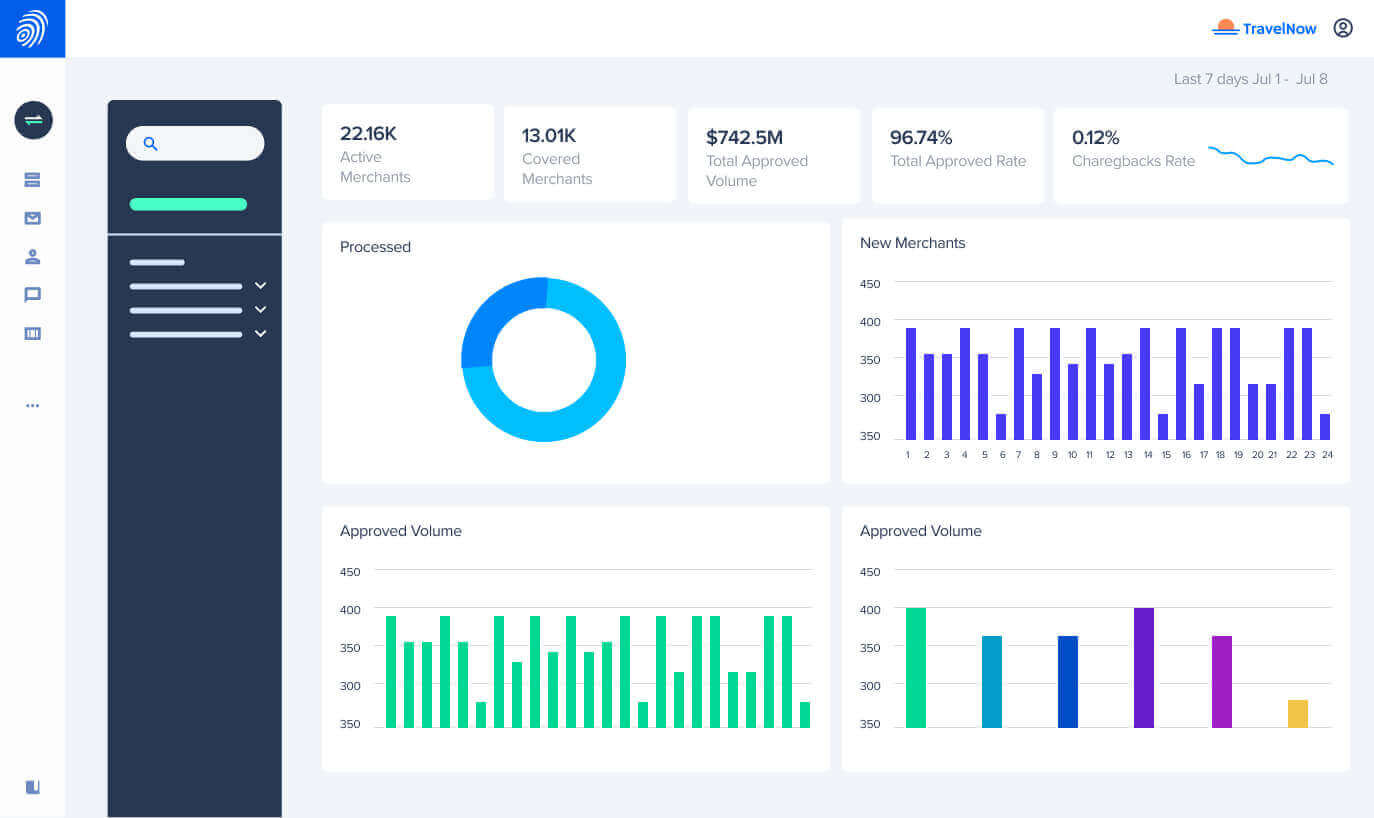Alternatives to Feedzai
1. ClearSale
+Pros
- Hybrid AI-human approach delivers proven fraud prevention effectiveness while maintaining high approval rates.
- Chargeback guarantee coverage provides comprehensive financial risk transfer.
- Platform integration flexibility accommodates both rapid SMB deployment and comprehensive enterprise integration.
-Cons
- Manual process dependencies create operational complexity.
- Implementation timeline variations range from one hour for simple plugins to 8-12 weeks for enterprise deployments.
One highlighted feature and why it's amazing
Combines machine learning algorithms with expert analyst review to process 91.3% of orders through automated approval while routing 8.3% to human analysts for complex fraud assessment.

Another highlighted feature of why it’s amazing
Offers comprehensive financial protection through performance-based pricing models that include liability transfer for fraudulent transactions.
2. Forter
+Pros
- Advanced Technical Capabilities through graph network analysis .
- Proven Operational Efficiency with consistent customer outcomes .
- Unique Commercial Protection with chargeback and approval rate guarantees .
- Enterprise-Grade Scalability processing over $200 billion in transactions annually .
-Cons
- Implementation Complexity requiring significant technical resources .
- Pricing Opacity through custom quote requirements .
- Explainability Limitations from deep learning approaches .
- Enterprise Focus Constraints may limit suitability for SMB businesses .
- Performance Variability between guaranteed metrics and actual outcomes .
One highlighted feature and why it's amazing
Links fraudulent accounts across transaction networks to identify 15% more address manipulation attempts and 6% more account takeovers compared to traditional approaches .

Another highlighted feature of why it’s amazing
Replaces manual rule-based systems by analyzing behavioral patterns across Forter's entire merchant network .
Other Alternatives
Kount
Ravelin
Riskified
Sift
Signifyd
How We Researched This Guide
About This Guide: This comprehensive analysis is based on extensive competitive intelligence and real-world implementation data from leading AI vendors. StayModern updates this guide quarterly to reflect market developments and vendor performance changes.
226+ verified sources per analysis including official documentation, customer reviews, analyst reports, and industry publications.
- • Vendor documentation & whitepapers
- • Customer testimonials & case studies
- • Third-party analyst assessments
- • Industry benchmarking reports
Standardized assessment framework across 8 key dimensions for objective comparison.
- • Technology capabilities & architecture
- • Market position & customer evidence
- • Implementation experience & support
- • Pricing value & competitive position
Research is refreshed every 90 days to capture market changes and new vendor capabilities.
- • New product releases & features
- • Market positioning changes
- • Customer feedback integration
- • Competitive landscape shifts
Every claim is source-linked with direct citations to original materials for verification.
- • Clickable citation links
- • Original source attribution
- • Date stamps for currency
- • Quality score validation
Analysis follows systematic research protocols with consistent evaluation frameworks.
- • Standardized assessment criteria
- • Multi-source verification process
- • Consistent evaluation methodology
- • Quality assurance protocols
Buyer-focused analysis with transparent methodology and factual accuracy commitment.
- • Objective comparative analysis
- • Transparent research methodology
- • Factual accuracy commitment
- • Continuous quality improvement
Quality Commitment: If you find any inaccuracies in our analysis on this page, please contact us at research@staymodern.ai. We're committed to maintaining the highest standards of research integrity and will investigate and correct any issues promptly.